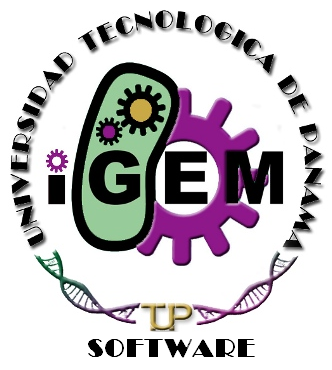Team:UTP-Software
From 2012.igem.org
(Difference between revisions)
| Line 4: | Line 4: | ||
<div align="justify">A program to help new IGEM teams with assembly standards selection, and site-directed mutagenesis for primers development in case of incompatibility, is this year UTP-Software team project. S<sup>2</sup>MT as we called it, applies “QuikChange Site-Directed Mutagenesis” [1] considerations for the design of mutagenic primers and gives users the resources to avoid restriction sites, making their designs compatible with IGEM standards. | <div align="justify">A program to help new IGEM teams with assembly standards selection, and site-directed mutagenesis for primers development in case of incompatibility, is this year UTP-Software team project. S<sup>2</sup>MT as we called it, applies “QuikChange Site-Directed Mutagenesis” [1] considerations for the design of mutagenic primers and gives users the resources to avoid restriction sites, making their designs compatible with IGEM standards. | ||
| - | + | Our team is also interested in the development of a tool to help teams and researchers to work and study the production of biofuels through synthetic biology. This will be done by analyzing routes from the substrates for the reactions, and then identify the responsible genes for each enzymatic reactions that could produce these biofuels. The target biofuels are biohydrogen, bioethanol, biodiesel and methane. | |
| - | + | ||
[1]. Wang, W.; Malcolm, B. A. 1999. Biotechniques. 26:680-682.</div> | [1]. Wang, W.; Malcolm, B. A. 1999. Biotechniques. 26:680-682.</div> | ||
Revision as of 06:31, 26 September 2012
|
|
Project DescriptionA program to help new IGEM teams with assembly standards selection, and site-directed mutagenesis for primers development in case of incompatibility, is this year UTP-Software team project. S2MT as we called it, applies “QuikChange Site-Directed Mutagenesis” [1] considerations for the design of mutagenic primers and gives users the resources to avoid restriction sites, making their designs compatible with IGEM standards.
Our team is also interested in the development of a tool to help teams and researchers to work and study the production of biofuels through synthetic biology. This will be done by analyzing routes from the substrates for the reactions, and then identify the responsible genes for each enzymatic reactions that could produce these biofuels. The target biofuels are biohydrogen, bioethanol, biodiesel and methane.
|
 "
"
